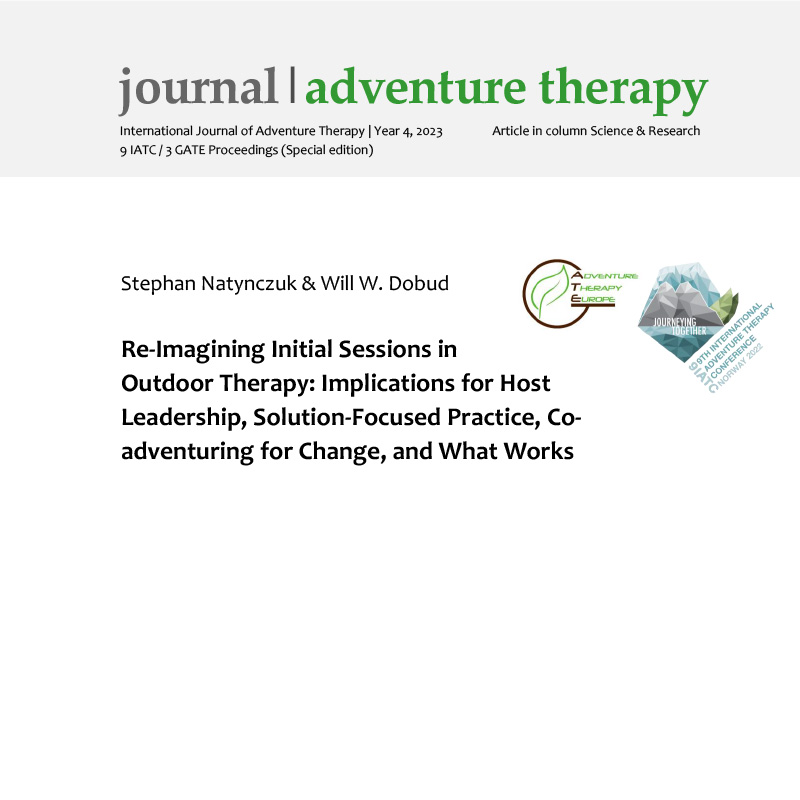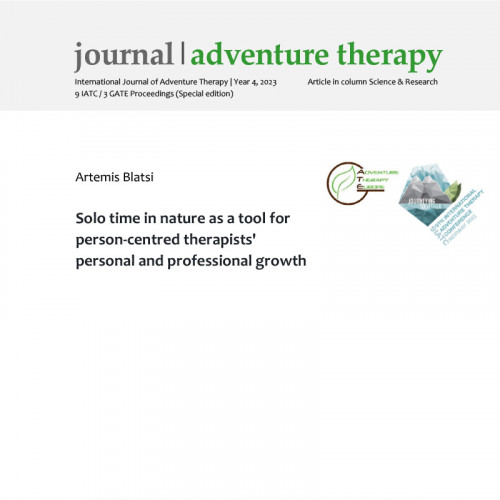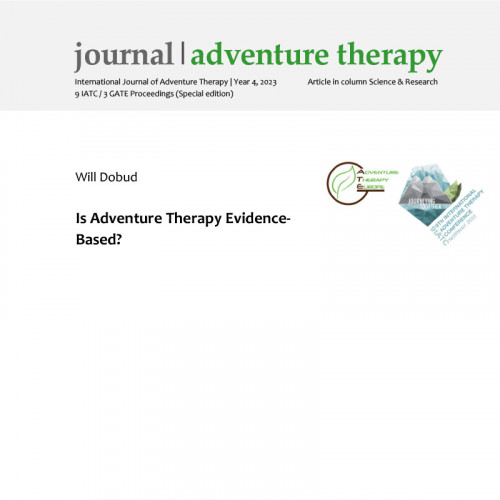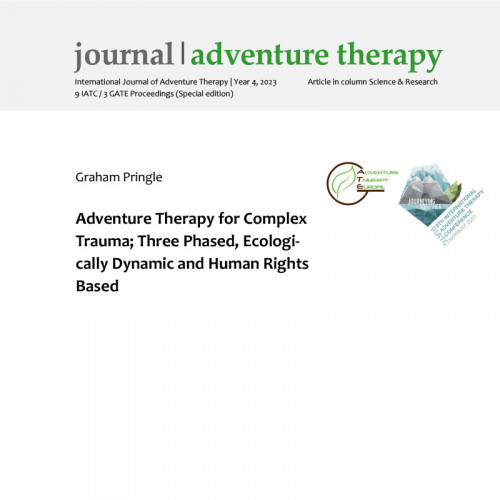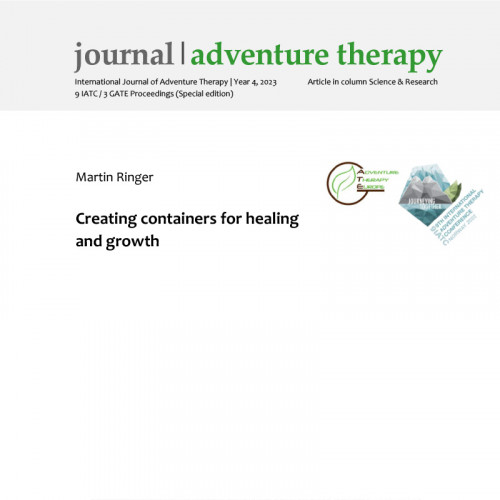Authors: Stephan Natynczuk & Will W. Dobud
Therapy participants, or co-adventurers as we prefer to use in outdoor therapy,
quickly decide whether they will engage cooperatively, leave, or passively remain in therapy. The initial session is important in setting the scene for the work, in building a useful therapeutic alliance, and facilitating a scheme of work useful to the change coadventurers are seeking for themselves. This present article examines international research relating to first session dropouts and implications for increasing hope and expectancy for clients in outdoor therapy practices. Solution-focused practices, host leadership, and outcome research are used to inform an evidenced framework for hosting initial meetings with potential and future clients. Implications are provided to aid practitioners in maintaining three points of contact based on Bordin’s (1979) original conceptualization of the therapeutic alliance from initial meetings with co adventurers.
